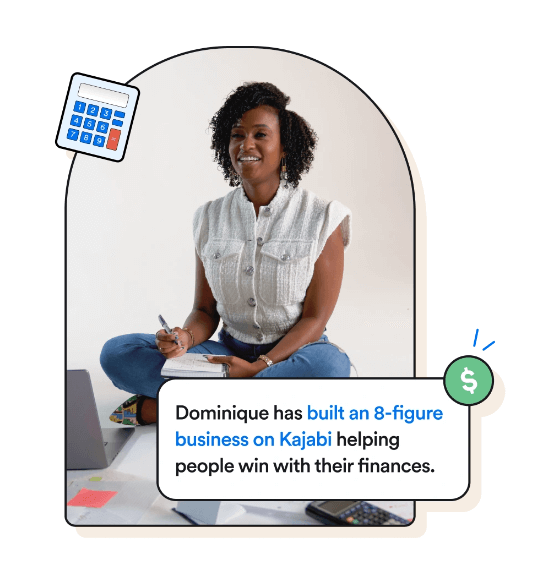Welcome back to our exciting journey through the world of Kajabi.
Today, we’re going to dive deeper into the question that’s on everyone’s mind: Is Kajabi worth it for your course business?
As always, I’m here to give you the real talk and provide you with all the information you need to make an informed decision.
So, let’s get started!
Pros of Using Kajabi:
- All-in-One Platform: Kajabi is like the Swiss Army knife of course creation platforms. It offers an impressive array of tools and features, all integrated into one cohesive platform. From website hosting to content creation, marketing automation, and payment processing – Kajabi has it all. Having everything centralized saves you time and energy, allowing you to focus on what truly matters – creating exceptional content and growing your business.
- User-Friendly Interface: As entrepreneurs, time is our most precious resource. Kajabi understands this and has designed its platform with a user-friendly interface. You don’t need to be a tech whiz or a design guru to use Kajabi effectively. With its intuitive drag-and-drop editor and straightforward navigation, building stunning websites and crafting engaging course content becomes an enjoyable experience.
- Professional Templates: We all know that first impressions are crucial. Kajabi comes to the rescue with its collection of professionally designed templates. These templates are not just aesthetically pleasing; they are also optimized for conversions. You can customize them to match your brand’s look and feel, leaving a lasting impression on your audience.

Cons to Consider:
- Pricing: Let’s face it – quality often comes with a price tag. While Kajabi’s features are undoubtedly valuable, some might find the pricing a bit on the higher side, especially for those just starting their course business. However, it’s crucial to remember that investing in the right tools can lead to higher revenue and a more seamless operation in the long run.
- Plus, don’t forget that we have partnered with Kajabi to offer you a generous FREE trial, giving you the opportunity to explore its features and see how it can transform your course business without any upfront commitment.
- Limited Customization: While Kajabi’s templates are fantastic, some course creators might feel limited in their ability to fully customize their websites. If you have a specific vision in mind that requires extensive customization, it’s worth considering whether Kajabi can fulfill those needs.
- Exploring Alternatives: In the vast ocean of course creation platforms, Kajabi is just one of the fish. Don’t hesitate to explore other platforms to see if they offer unique features that align better with your specific business goals and budget. Comparing options will help you make an informed decision.
Is Kajabi Right for Your Course Business?
The answer to this question is not one-size-fits-all. The suitability of Kajabi for your course business depends on your individual needs and goals.
If you value convenience, professionalism, and ease of use, Kajabi could be an excellent match for you. Its user-friendly interface and professional templates can save you time and elevate your online presence.
On the other hand, if budget is a significant concern or if you require extensive customization options, it’s essential to evaluate other alternatives before making a final decision.

Remember, the right platform will empower you to share your knowledge with the world and build a thriving course business. Take your time to consider what aligns best with your vision, and you’ll be well on your way to making the right choice.
I hope this expanded breakdown helps you in your decision-making process. Join me tomorrow for Day 3, where we’ll explore the secrets of crafting compelling course content that keeps your students coming back for more!
►► Grab your FREE trial of Kajabi + $5,995.00 of FREE bonuses here: https://danlok.com/kajabi/ ◄◄
Are you ready to get paid for what you know?
►► Watch the FREE masterclass here: https://www.getpaidmasterclass.com ◄◄
To your unstoppable success,
Dan Lok
